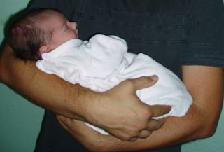Spanish secret agent accused of treason
Spanish Public Prosecutor Accuses Ex Spy of Treason
Yesterday the Spanish Department of Public Prosecutions has accused a Spanish ex spy, 42 year old Roberto Flórez García, of selling sensitive information from the Spanish secret service to a foreign country, believed to be Russia. The accused faces a prison sentence of between six and twelve years according to Spanish law. According to judicial sources the Spanish secret service (CNI) informed the public prosecutors office two weeks ago of their belief that Flórez had been acting illegally.
Alberto Saiz, the director of the Spanish secret service talked to the press yesterday about the first case of the CNI being infiltrated from within the heart of the organization. Yesterday Flórez was arrested by police on suspicion of being a double agent and selling information to a foreign source. Two houses belonging to Flórez in Tenerife were searched and as a result a large number of documents were seized.
The accused is suspected of selling information to Russia about other agents working for the secret service as well as details about its structure between 2001 and 2004 although these accusations have been refuted by the Russian embassy in Madrid.
According to the investigation now underway Flórez, who had worked for the CNI for 12 consecutive years offered to sell classified information including information on agents, the internal structure of the CNI and counter intelligence activities to a foreign source in exchange for large payments. Saiz mentioned seven agents belonging to the CNI who died in Iraq in November 2003 although he didn’t say whether information sold by Flórez could have led to the ambush in which the agents were killed.
Despite the seriousness of the allegations Sáiz said that the security of Spain, its institutions, the EU or NATO had not been compromised at any time. He also said that information involving the fight against terrorism had not been given away by Flórez because he had never been close to the Department for International Terrorism which had been set up just a few months before the 11th March terrorist attacks in Madrid.
Saiz also said that an internal investigation into the activities of Flórez had been taking place since 2005 but that information had only been handed over to the Public Prosecutors office three weeks ago.
Although Saiz didn’t want to reveal the foreign source that Flórez had been selling information it is believed to be Russia. Nevertheless an official spokesperson from the Russian embassy in Madrid has strenuously denied that Russia had any dealings with Flórez.
The director of the CNI also admitted that changes to procedures and modifications to structures within the Spanish secret service in addition to new security measures have been in place since the allegations came to light. Although Saiz also added that the organization undergoes constant changes and information sold by Flórez is now meaningless. Saiz said that that it had been a failure of the CNI not to recognize the possibility of somebody working as a mole from within the organization.
Yesterday the Spanish Department of Public Prosecutions has accused a Spanish ex spy, 42 year old Roberto Flórez García, of selling sensitive information from the Spanish secret service to a foreign country, believed to be Russia. The accused faces a prison sentence of between six and twelve years according to Spanish law. According to judicial sources the Spanish secret service (CNI) informed the public prosecutors office two weeks ago of their belief that Flórez had been acting illegally.
Alberto Saiz, the director of the Spanish secret service talked to the press yesterday about the first case of the CNI being infiltrated from within the heart of the organization. Yesterday Flórez was arrested by police on suspicion of being a double agent and selling information to a foreign source. Two houses belonging to Flórez in Tenerife were searched and as a result a large number of documents were seized.
The accused is suspected of selling information to Russia about other agents working for the secret service as well as details about its structure between 2001 and 2004 although these accusations have been refuted by the Russian embassy in Madrid.
According to the investigation now underway Flórez, who had worked for the CNI for 12 consecutive years offered to sell classified information including information on agents, the internal structure of the CNI and counter intelligence activities to a foreign source in exchange for large payments. Saiz mentioned seven agents belonging to the CNI who died in Iraq in November 2003 although he didn’t say whether information sold by Flórez could have led to the ambush in which the agents were killed.
Despite the seriousness of the allegations Sáiz said that the security of Spain, its institutions, the EU or NATO had not been compromised at any time. He also said that information involving the fight against terrorism had not been given away by Flórez because he had never been close to the Department for International Terrorism which had been set up just a few months before the 11th March terrorist attacks in Madrid.
Saiz also said that an internal investigation into the activities of Flórez had been taking place since 2005 but that information had only been handed over to the Public Prosecutors office three weeks ago.
Although Saiz didn’t want to reveal the foreign source that Flórez had been selling information it is believed to be Russia. Nevertheless an official spokesperson from the Russian embassy in Madrid has strenuously denied that Russia had any dealings with Flórez.
The director of the CNI also admitted that changes to procedures and modifications to structures within the Spanish secret service in addition to new security measures have been in place since the allegations came to light. Although Saiz also added that the organization undergoes constant changes and information sold by Flórez is now meaningless. Saiz said that that it had been a failure of the CNI not to recognize the possibility of somebody working as a mole from within the organization.






